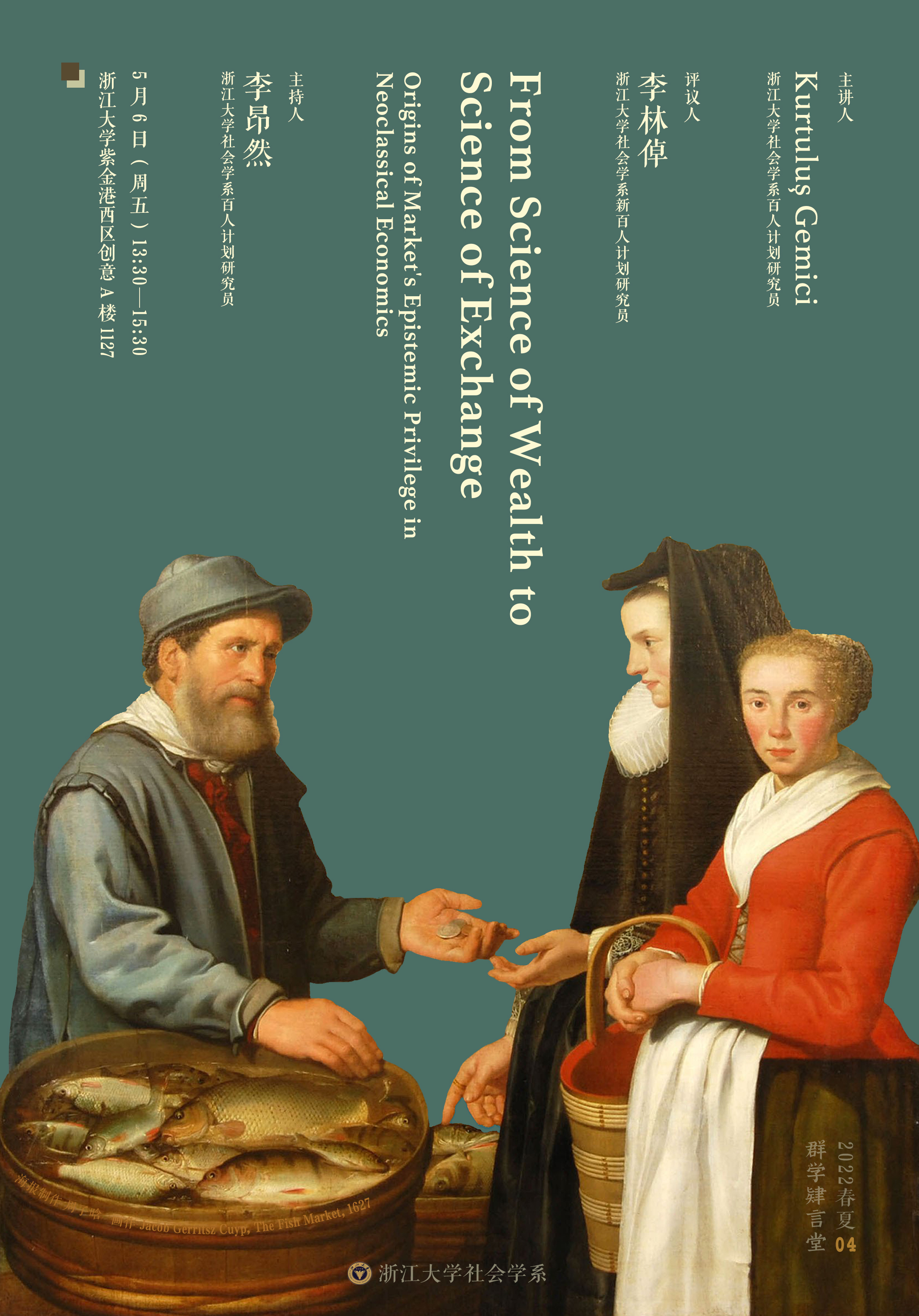
Time: 06 May 2022 (Friday) 1:30-3:30pm (Beijing Time)
Venue: Room 1127, Block A, Creative Building, Zijingang Campus, Zhejiang University
Language: English
Topic: From Science of Wealth to Science of Exchange: Origins of Market’s Epistemic Privilege in Neoclassical Economics
Abstract: Classical political economy of Smith, Ricardo, Malthus, and Marx was the science of national wealth. Its central focus was on production, capital accumulation,and growth. Its key proposition was that distribution of income, population dynamics, and social institutions determined the center of gravity around which market prices fluctuated. This picture of the economy changed in the early 1870s with the almost simultaneous and independent publication of three books by economists in three different countries—Jevons, Menger, and Walras—books that put market exchange and prices at the center of economy. By using private letters and published works of these economists and by combining the theory of scientific intellectual movements with field theory, this article offers a sociological explanation of how three authors in three different intellectual contexts produced works that converged in conceptualizing market exchange as the fundamental determinant of economic activity. Despite remarkable differences in intellectual contexts, all three authors exploited the same opportunity structure offered by classical political economy: although classical political economy advocated deduction and universal economic laws, its theoretical core was eclectic and its propositions were attuned to historical and social particulars. Such an opportunity structure enabled the same legitimate intellectual strategy across different intellectual fields: build a deductive theory by tapping into ideas such as subjective utility and market equilibrium, which were at the margins of economic thinking until then; and, subsume all economic thought under a single deductive theory. As a result, political economy became the science of exchange not because Jevons, Menger, and Walras found first principles that explain existing economic phenomena in a more satisfactory manner. To the contrary, political economy became the science of exchange because these thinkers could carry the intellectual project of building a deductive science from first principles, regardless of whether it explained economic phenomena more thoroughly.
Lecturer: Kurtuluş Gemici, ZJU100 Young Professor, Department of Sociology, Zhejiang University
Moderator: Angran Li, ZJU100 Young Professor, Department of Sociology, Zhejiang University
Commentator: Linzhuo Li, ZJU100 Young Professor, Department of Sociology, Zhejiang University
